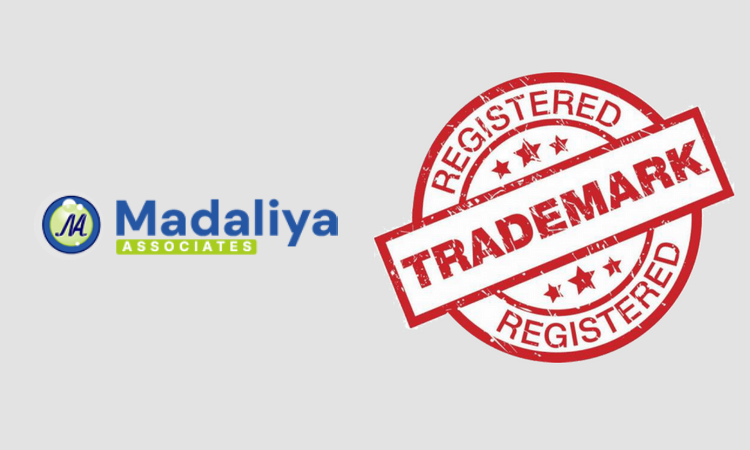

Digital Signature Registration
In the digital-first era, legal compliance is no longer a secondary consideration—it's a business imperative. With the rapid digitization of transactions, documents, and contracts, digital signature registration has emerged as a critical tool for organizations aiming to secure, authenticate, and legally bind their electronic communications. By integrating digital signatures into operational workflows, businesses can not only enhance efficiency and data integrity but also ensure their processes meet regulatory standards worldwide.
In this blog post, we will explore what digital signatures are, their legal framework, benefits of compliance, and best practices for businesses to follow. Whether you're a startup or an enterprise, understanding and adopting digital signature registration is essential to future-proof your business.
What is a Digital Signature?
A digital signature is a cryptographic method used to verify the authenticity and integrity of a digital message or document. Unlike handwritten signatures, digital signatures use encryption techniques to generate a unique digital fingerprint—making any unauthorized modification immediately detectable.
Here's how it works:
-
A signer uses a digital certificate (issued by a trusted certification authority) to generate a unique signature.
-
This digital fingerprint is linked to both the document and the signer, creating a secure, tamper-evident system.
-
Any changes made after the document is signed will invalidate the signature.
Digital signature registration ensures that this process adheres to strict standards and protocols, safeguarding both the content and the signer's identity.
Legal Framework and Acceptance:
Digital signature registration operates within a legal framework designed to ensure the validity and enforceability of electronically signed documents. Many countries have implemented specific legislation and regulations to recognize and accept digital signatures as legally binding. For instance, in the United States, the Electronic Signatures in Global and National Commerce (ESIGN) Act and the Uniform Electronic Transactions Act (UETA) provide legal validity to electronic signatures. Similarly, the European Union has the eIDAS Regulation, which establishes a harmonized legal framework for electronic identification and trust services, including digital signatures. Adhering to these regulations is essential for businesses to ensure legal compliance when using digital signatures.
Benefits of Legal Compliance :
Ensuring legal compliance with digital signature registration offers several significant benefits. Firstly, it provides legal certainty and enforceability to electronic agreements and contracts. This means that parties involved can trust that their electronically signed documents hold the same weight as their paper-based counterparts. Secondly, compliance helps businesses avoid disputes and challenges regarding the validity of signatures, as digital signatures have a strong evidentiary value. Additionally, legal compliance instills trust and confidence in customers and partners, enhancing business relationships and credibility. Lastly, compliance demonstrates a commitment to data protection and privacy, which is crucial in today's regulatory landscape.
Why Legal Compliance with Digital Signatures Matters
Ensuring legal compliance with digital signature registration goes far beyond ticking a box. It offers a range of tangible benefits that impact your business’s legal standing, customer trust, and operational efficiency.
1. Legal Validity and Enforceability
Documents signed with legally registered digital signatures are admissible in court and hold the same weight as traditional paper contracts. This legal certainty is crucial in protecting your organization against disputes and fraud.
2. Enhanced Data Security
Digital signatures employ advanced encryption to secure documents, making them tamper-proof and ensuring data integrity. This is especially vital in sectors like finance, healthcare, and legal services where data sensitivity is high.
3. Non-Repudiation
Once a document is signed digitally, the signer cannot deny their involvement. This provides a strong legal foundation in case of conflicts and reinforces the authenticity of the document.
4. Builds Trust and Credibility
Businesses that adopt digital signature registration at madaliya.com demonstrate a proactive stance on compliance, security, and transparency. This builds trust with customers, partners, and regulatory bodies.
5. Audit Trails and Record Keeping
Most digital signature solutions maintain detailed logs and audit trails, making it easy to verify signatory actions. This simplifies regulatory reporting and internal audits.
Key Considerations for Digital Signature Legal Compliance
1. Choose a Certified Digital Signature Service Provider
Not all digital signature solutions are created equal. It’s crucial to choose a certified and compliant digital signature service provider that adheres to regional regulations such as eIDAS, ESIGN, and UETA. Look for providers offering:
-
End-to-end encryption
-
Tamper-evident sealing
-
Secure digital certificate management
-
Multi-factor authentication
2. Implement Strong Identity Verification
Ensuring that the right person is signing the document is essential for legal compliance. Use robust identity verification mechanisms such as:
-
Government-issued IDs
-
Biometric authentication
-
OTP-based mobile verification
-
KYC/AML checks
3. Maintain Accurate Records
Maintain comprehensive logs of all digital signature activities, including:
-
Timestamps
-
IP addresses
-
Certificate IDs
-
Document versions
These records are essential for audit purposes and can serve as legal evidence in case of disputes.
4. Stay Updated on Regulatory Changes
Laws governing digital signature registration are continually evolving. Subscribe to updates from legal advisory bodies and consult with experts to ensure your practices remain up-to-date and compliant.
5. Train Your Teams
Ensure all departments—especially legal, HR, procurement, and sales—are trained in the correct use of digital signature platforms. This minimizes errors and helps in creating a culture of compliance within the organization.
Real-World Applications of Digital Signature Compliance
-
Real Estate: Digitally sign rental agreements, purchase contracts, and registration forms.
-
Healthcare: Securely sign medical records, patient consent forms, and insurance documents.
-
Finance: Execute loan agreements, investment contracts, and KYC documentation.
-
Legal: Sign affidavits, power of attorney, and other legal declarations.
These examples illustrate how digital signature registration can transform industries by reducing paperwork, accelerating processes, and maintaining regulatory integrity.
1. What is digital signature registration?
Digital signature registration is the process of obtaining a legally recognized digital certificate from a certification authority (CA) to sign electronic documents securely. This registration ensures that digital signatures are unique, tamper-proof, and legally binding under relevant laws such as ESIGN, UETA, or eIDAS.
2. Are digital signatures legally valid in all countries?
Digital signatures are legally recognized in most countries, but the legal framework varies. For example:
-
In India, digital signatures are governed by the Information Technology Act, 2000.
It’s essential to comply with the local regulations where your business operates.
3. How can I ensure my digital signature is legally compliant?
To ensure legal compliance, you should:
-
Use a trusted digital signature service provider.
-
Implement strong identity verification methods.
-
Maintain detailed records and audit trails.
-
Stay informed about regulatory changes.
-
Train staff on proper digital signing procedures.
4. What are the benefits of legal compliance with digital signatures?
Complying with digital signature laws provides:
-
Legal enforceability of electronic documents
-
Enhanced data security and integrity
-
Non-repudiation, ensuring the signer cannot deny signing
-
Customer trust and improved business credibility
-
Faster workflows with reduced paperwork
5. What industries use digital signatures for legal compliance?
Digital signatures are widely used across industries, including:
-
Real estate (property contracts)
-
Finance (loan agreements, KYC)
-
Healthcare (patient records, consent forms)
-
Legal (affidavits, contracts)
-
E-commerce (terms of service, vendor agreements)
These industries benefit from faster transactions, security, and regulatory compliance.
Conclusion: A Strategic Move Towards Digital Transformation
Embracing digital signature registration is no longer a luxury—it’s a strategic necessity. It empowers businesses to streamline operations, improve data security, and ensure legal compliance in every digital transaction. By selecting the right tools, staying aligned with laws, and educating internal teams, organizations can unlock a future where speed, security, and legality go hand in hand.
In today’s hyperconnected world, where digital transformation defines competitive advantage, being compliant with digital signature regulations isn't just about avoiding penalties—it's about building trust, safeguarding your brand, and driving business growth.






